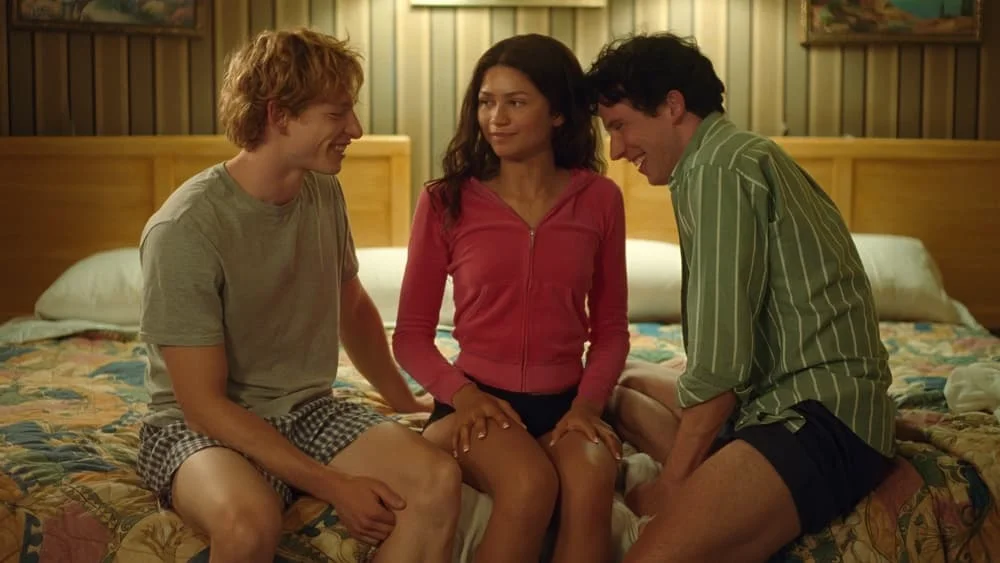Have you ever seen a movie and thought, “Oh yeah, Screenwriting 101 professors will be teaching this religiously for the next few years”? That thought crossed my mind more than once during Luca Guadagnino’s new film “Challengers.” I don’t mean this to demean the film but in all the screenwriting courses I’ve taken that aimed to get you to write creatively within an oppressive mainstream structure, this film’s script embodies many of the principles preached in those classes. If anything, this is a great example of how you can still make intriguing drama within that structure.
Screenwriter Justin Kuritzkes’s greatest strength is how he can give the audience all the information they need primarily through implication. It’s all subtext. This is pretty standard advice in most beginner screenwriting courses (good ones, anyway), but it’s shockingly difficult to find in mainstream movies. Most are bogged down in exposition, and the ones that aren’t often don’t give the audience enough to grasp the story or characters fully. Kuritzkes finds the perfect balance, allowing him to be more creative with the film’s structure without the audience getting lost. Bouncing non-linearly between moments in the characters’ lives, Kuritzkes can tease information with a bigger payoff than if the story had been told linearly. It also allows the intensity of the final match to build throughout as we learn about the dynamic between the central trio, rather than a more traditional sports movie final showdown that acts as a culmination of all we have seen before.
As much as “Challengers” is a script-driven film, it also shows a great script’s limitations in leading to a great final product. A movie like this lives and dies by its performances. In the case of Mike Faist, his screen presence adds a depth of personality to the role that isn’t necessarily on the page. He has much to work with, but he makes the role his own with his energy and mannerisms. Most impressive is Faist’s ability to command both versions of his character — the scrappy, awkward younger version and the tired, powerless older version. It stands in stark contrast to his costars Zendaya, who can’t quite nail the older, colder, stoic Tashi, and Josh O'Connor, who only has to play the young, cocky, unprofessional because his character never really grows up.
Lost in the shuffle of mostly strong performances and a killer script is Guadagnino, who is desperately trying to put his directorial stamp on a film that is overwhelmingly the product of its stars and writer. It allows him to be a bit freer and create some truly deranged images during the tennis sequences, including an extended POV shot of the ball being rallied and shooting underneath the actors from below a glass court. Paired with a pulsating score from Trent Reznor and Atticus Ross, they are some of the most invigorating scenes of Guadagnino’s career. But one gets the sense that the director doesn’t have much to add thematically to the film. His compositions are entertaining, but it never feels in service of the story. It doesn't work against what’s on the page, but the extra visual flash doesn’t add much.
“Challengers” is still one of the more exciting mainstream releases since Barbenheimer last July. Especially in a quiet year with Dune: Part Two and nothing else of substance aimed at general audiences, it’s refreshing to see a good, mid-budget movie aimed at adults that (at least online) people have seemed to be craving for some time. If audiences can’t get behind a movie like this — fun, star-filled, and sexy — the film industry may truly be screwed.

